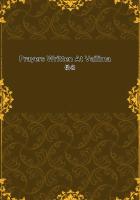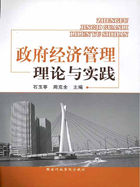The simple fact that the clergy became an exclusive caste, with a peculiar character, peculiar habits, and peculiar ideals, would in itself have had a prejudicial influence on the priesthood; but this was not all. The caste increased in numbers by the process of natural reproduction much more rapidly than the offices to be filled, so that the supply of priests and deacons soon far exceeded the demand; and the disproportion between supply and demand became every year greater and greater. In this way was formed an ever-
increasing clerical Proletariat, which--as is always the case with a Proletariat of any kind--gravitated towards the towns. In vain the Government issued ukazes prohibiting the priests from quitting their places of domicile, and treated as vagrants and runaways those who disregarded the prohibition; in vain successive sovereigns endeavoured to diminish the number of these supernumeraries by drafting them wholesale into the army. In Moscow, St. Petersburg, and all the larger towns the cry was, "Still they come!" Every morning, in the Kremlin of Moscow, a large crowd of them assembled for the purpose of being hired to officiate in the private chapels of the rich nobles, and a great deal of hard bargaining took place between the priests and the lackeys sent to hire them--conducted in the same spirit, and in nearly the same forms, as that which simultaneously took place in the bazaar close by between extortionate traders and thrifty housewives. "Listen to me," a priest would say, as an ultimatum, to a lackey who was trying to beat down the price: "if you don't give me seventy-five kopeks without further ado, I'll take a bite of this roll, and that will be an end to it!" And that would have been an end to the bargaining, for, according to the rules of the Church, a priest cannot officiate after breaking his fast. The ultimatum, however, could be used with effect only to country servants who had recently come to town. A sharp lackey, experienced in this kind of diplomacy, would have laughed at the threat, and replied coolly, "Bite away, Batushka; I can find plenty more of your sort!" Amusing scenes of this kind I have heard described by old people who professed to have been eye-witnesses.
The condition of the priests who remained in the villages was not much better. Those of them who were fortunate enough to find places were raised at least above the fear of absolute destitution, but their position was by no means enviable. They received little consideration or respect from the peasantry, and still less from the nobles. When the church was situated not on the State Domains, but on a private estate, they were practically under the power of the proprietor--almost as completely as his serfs; and sometimes that power was exercised in a most humiliating and shameful way. I
have heard, for instance, of one priest who was ducked in a pond on a cold winter day for the amusement of the proprietor and his guests--choice spirits, of rough, jovial temperament; and of another who, having neglected to take off his hat as he passed the proprietor's house, was put into a barrel and rolled down a hill into the river at the bottom!
In citing these incidents, I do not at all mean to imply that they represent the relations which usually existed between proprietors and village priests, for I am quite aware that wanton cruelty was not among the ordinary vices of Russian serf-owners. My object in mentioning the incidents is to show how a brutal proprietor--and it must be admitted that they were not a few brutal individuals in the class--could maltreat a priest without much danger of being called to account for his conduct. Of course such conduct was an offence in the eyes of the criminal law; but the criminal law of that time was very shortsighted, and strongly disposed to close its eyes completely when the offender was an influential proprietor. Had the incidents reached the ears of the Emperor Nicholas he would probably have ordered the culprit to be summarily and severely punished but, as the Russian proverb has it, "Heaven is high, and the Tsar is far off." A village priest treated in this barbarous way could have little hope of redress, and, if he were a prudent man, he would make no attempt to obtain it; for any annoyance which he might give the proprietor by complaining to the ecclesiastical authorities would be sure to be paid back to him with interest in some indirect way.
The sons of the clergy who did not succeed in finding regular sacerdotal employment were in a still worse position. Many of them served as scribes or subordinate officials in the public offices, where they commonly eked out their scanty salaries by unblushing extortion and pilfering. Those who did not succeed in gaining even modest employment of this kind had to keep off starvation by less lawful means, and not unfrequently found their way into the prisons or to Siberia.
In judging of the Russian priesthood of the present time, we must call to mind this severe school through which it has passed, and we must also take into consideration the spirit which has been for centuries predominant in the Eastern Church--I mean the strong tendency both in the clergy and in the laity to attribute an inordinate importance to the ceremonial element of religion.














